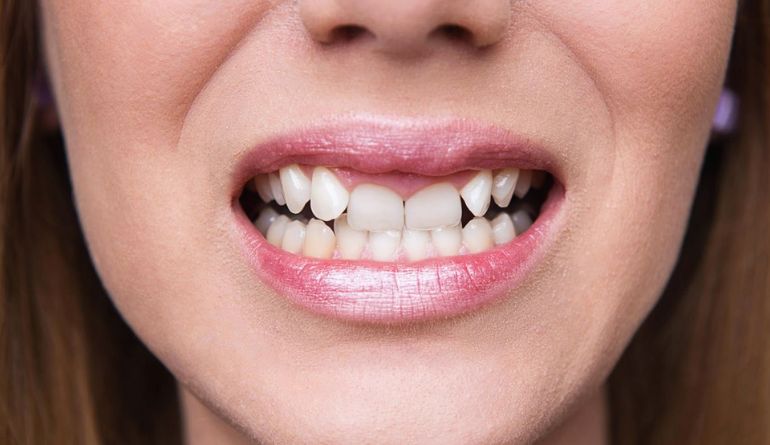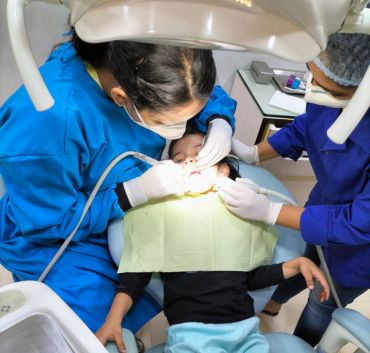Crooked Teeth And Their Impact On Overall Health
Invisalign has revolutionized the way people straighten their teeth. Unlike traditional braces, Invisalign aligners are more comfortable, removable, and nearly invisible. Their popularity stems from the convenience and aesthetic appeal they offer. However, to achieve the best results, it's essential to follow some key guidelines during your treatment. Here are five practical tips to ensure a smooth and successful Invisalign journey.

Crooked teeth can cause oral and general health complications despite the common misconception that they are merely a cosmetic concern. Misaligned teeth might make it more difficult to practice good oral hygiene, raise the possibility of dental issues, and potentially aggravate preexisting medical disorders. Being aware of these hazards will enable you to choose treatments that will improve your general health and your smile. In this blog, we will break down all about crooked teeth and how they can impact your oral health.
Causes of Crooked Teeth
Genetics: You may inherit the same alignment problems if your parents or grandparents had crooked teeth. The size of your jaw and the position of your teeth are largely determined by genetics.
Early Childhood Habits: As a child's jaw develops, thumb sucking, extended pacifier use, tongue pushing, and mouth breathing can cause misalignment.
Jaw Size & Structure: Over generations, smaller jaws brought on by softer diets have frequently resulted in tooth crowding.
Tooth Loss & Shifting: When a tooth is lost because of disease or trauma, neighboring teeth may move into its place, eventually causing misalignment.
Poor Dental Care: Long-term misalignment may result from untreated cavities, gum disease, and a lack of orthodontic treatment.
The Oral Health Risks of Crooked Teeth
Difficulty in Cleaning: Plaque can accumulate in hard-to-reach places when teeth are crowded or overlap, making it more difficult to clean and floss properly.
Increased Risk of Cavities & Gum Disease: Misalignment-related poor oral hygiene increases the risk of cavities and periodontal disease. If treatment is not received, this may eventually lead to tooth loss.
Excessive Wear and Tear: Uneven bite force distribution from crooked teeth can result in dental discomfort, enamel degradation, and equal fractures.
Bad Breath (Halitosis): Social encounters might be stressful due to continuous foul breath caused by food particles and bacteria trapped between crooked teeth.
Impact of Crooked Teeth on Overall Health
Jaw Pain & TMJ Disorders: The temporomandibular joint (TMJ) may be strained by misaligned teeth, resulting in stiffness, chewing difficulties, and persistent jaw pain.
Headaches & Migraines: Frequent headaches and migraines are caused by the surrounding muscles overcompensating when teeth are not aligned correctly.
Digestive Issues: Ineffective chewing brought on by misaligned teeth can lead to poor digestion since food is not properly broken down before it reaches the stomach.
Speech Difficulties: Misalignment can affect the airflow and location of the tongue, making it challenging to pronounce some words effectively.
Self-Esteem & Mental Health: Confidence is greatly influenced by a smile. People who have crooked teeth could be self-conscious about how they look, which could affect their social life and general mental health.
Treatment Options for Crooked Teeth
Braces: Braces such as invisalign, ceramic braces, lingual braces, and traditional metal braces are orthodontic treatments that gradually realign teeth.
Retainers: Retainers are used to preserve alignment and stop teeth from moving back to their original positions and are used after braces.
Veneers: Veneers can be applied to the front of teeth in cases of mild misalignment to give the appearance of a straighter smile.
Dental Surgery: Surgery may be necessary in extreme cases of misalignment in order to realign the jaw and enhance function. A crown may be needed after dental surgery.
Why Early Intervention Matters
Misalignment problems are easier to treat the earlier they are addressed. By guiding optimal teeth alignment while a child's jaw is still developing, pediatric orthodontics can minimize the need for extensive treatment later in life.
Complications such as gum disease, TMJ issues, and excessive wear can also be avoided with early management. Time and money can be saved, and discomfort can be avoided in the long term by seeing an orthodontist as soon as possible if you suspect misalignment in your child or yourself.
Invest in a Healthier Smile
Straight teeth are beneficial for more than simply appearance; they also help with communication, digestion, dental hygiene, and general health. It's crucial to get expert advice from a dentist or orthodontist if your teeth are misaligned to determine the best course of action. In addition to improving your look, a properly aligned smile provides you the long-term dental and overall health advantages.
Book an appointment with us to learn about dental crown costs in Goregaon.

Call Now